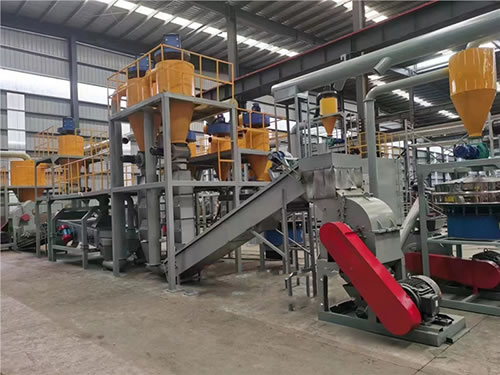Henan Brand Phosphoric Acid Lithium Battery Recycling and Processing Equipment with High Quality and Trustworthiness Boosts the Ternary Lithium Battery Recycling Industry in Cambodia Moving Forward
# Rising Demand for Industrial Products: How Cambodia Can Address Challenges and Seize Opportunities
With the increasing demand for industrial products globally, Cambodia is presented with both challenges and opportunities.
## Challenges
Cambodia faces challenges such as inadequate infrastructure, limited access to financing for businesses, and a shortage of skilled labor. These factors can hinder the growth of its industrial sector and make it difficult to meet the rising demand for industrial products.
## Opportunities
However, there are also opportunities. Cambodia has a young and growing population, which provides a potential labor force. The government is making efforts to improve infrastructure and attract foreign investment. By focusing on key industries such as textiles and garments, electronics, and agro-processing, Cambodia can take advantage of the rising demand and boost its economy.
To address the challenges and seize the opportunities, Cambodia needs to continue investing in infrastructure, provide training and education to improve the skills of its workforce, and create a favorable business environment to attract more investment. With these measures, Cambodia can position itself as a competitive player in the global industrial market and achieve sustainable economic growth.

# Title: Strategies for Enhancing the Utilization and Recycling Rate of Ternary Lithium Batteries
With the rapid development of new energy technologies, ternary lithium batteries have become the preferred power sources for electric vehicles due to their high energy density and long cycle life. However, the issue of battery recycling has become increasingly prominent as they approach the end of their lifespan. To improve the utilization and recycling rate of ternary lithium batteries, several strategies can be implemented.
Firstly, establishing a standardized recycling system is crucial. This involves setting up dedicated collection points and recycling centers to ensure that used batteries are properly handled and recycled. Additionally, developing advanced recycling technologies such as hydrometallurgical processes and pyrometallurgical methods can effectively extract valuable metals like cobalt, nickel, and lithium from the batteries.
Secondly, promoting the concept of circular economy is essential. By encouraging consumers to return used batteries for recycling, we can reduce the environmental impact of battery disposal and conserve valuable resources. This can be achieved through public awareness campaigns and incentive programs.
Furthermore, research and development should be encouraged to improve the design and performance of ternary lithium batteries. For example, developing new materials and electrolytes can enhance the battery's durability and safety, thereby extending its service life and reducing the need for frequent replacements.
In conclusion, by implementing these strategies, we can significantly improve the utilization and recycling rate of ternary lithium batteries, contributing to a more sustainable future. It is imperative that we take action now to address this pressing issue and pave the way for a cleaner and greener energy landscape.

### Performance Characteristics of Lithium Iron Phosphate Recycling and Processing Equipment
Lithium iron phosphate (LiFePO₄) recycling and processing equipment is designed to efficiently handle the complex task of reclaiming valuable materials from used batteries. This advanced equipment boasts several key performance characteristics that set it apart in the industry.
Firstly, it features high precision sorting technology that accurately separates lithium, iron, phosphorus, and other critical elements from the spent batteries. This ensures a high purity output, which is essential for reusing these materials in new battery production or other applications. The equipment's efficient material recovery process minimizes waste and maximizes resource utilization.
Secondly, the equipment incorporates robust safety features, including temperature control systems and protective barriers, to prevent overheating and potential hazards during the recycling process. This ensures operator safety and protects the environment from harmful emissions.
Additionally, the equipment is designed for energy efficiency, reducing power consumption during operation. It also has a user-friendly interface that allows operators to easily monitor and adjust the recycling process, ensuring optimal performance and consistent results.
In summary, lithium iron phosphate recycling and processing equipment combines high precision sorting, robust safety features, energy efficiency, and ease of use to provide an effective solution for recycling and repurposing valuable materials from used batteries.
In summary, with its high-quality products and services, Maoxin Machinery's lithium iron phosphate battery recycling and processing equipment has provided strong support for enterprises in Cambodia and more countries and regions that turn waste into treasure from ternary lithium batteries. In the future development, Maoxin Machinery Company will continue to adhere to the principle of "valuing contracts and keeping promises", providing customers who turn waste into treasure from ternary lithium batteries in Cambodia with more practical and reliable products and services. Wishing our customers in Cambodia who turn waste into treasure from ternary lithium batteries: may your negotiation wisdom shine brightly, may the warmth of our joint hands touch your heart. Wishing our path of cooperation becomes wider and wider, and may your future life be filled with good fortune and happiness.